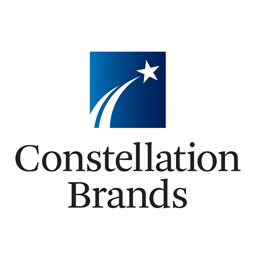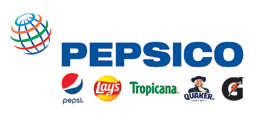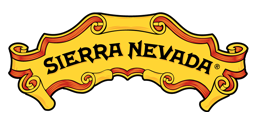Delaware North is a global hospitality and entertainment company operating at high-profile places such as sports and entertainment venues, national and state parks, cultural landmarks, destination resorts and restaurants, airports, and regional casinos.
GreenPath® is Delaware North’s commitment to stewardship. We focus on sustainability initiatives to reduce environmental impacts, protect natural resources, improve operational efficiency and contribute positively to communities we serve. Our initiatives deliver on accountability, ensure transparency and continually drive performance.
We understand the importance of partnerships to support sustainability. With our partners, we identified four priorities: to improve sustainability communications, to drive aluminum packaging to reduce impacts from single-use plastics, divert waste from landfills and support client initiatives.
We are proud to partner with our beverage suppliers in support of sustainability. Together, we can achieve more.
Anheuser-Busch | Boston Beer Company | Coca Cola | Constellation Brands | E. & J. Gallo Winery | Molson Coors | PepsiCo | Sierra Nevada
At Anheuser-Busch, sustainability is not just related to our business, it is our business. Beer is a natural product and a healthy environment is a key ingredient in the brewing process. That’s why, as the country’s leading brewer, we are committed to protecting the environment from seed to sip and inspiring our partners to do the same.
Reduce impacts from single-use packaging:
- Through its 2025 Sustainability Goals, Anheuser-Busch has committed to 100% of its packaging being made from majority recycled content or returnable by 2025. Returnable packaging is the best solution to reduce or eliminate impacts from single-use products, but when reusable or refillable options are not readily available, Anheuser-Busch strives to provide support and packaging which enhance other forms of circularity, such as recycling.
- While kegs are the best example of returnable packaging, capable of being washed, returned, and refilled hundreds of times over their 20+ year lifetime, our draught beer is commonly served in single-use cups. In 2019 & 2020, A-B delivered on its circular packaging strategy and partnered with several organizations to address this challenge by providing aluminum cups for the Super Bowl – presenting beer drinkers with unique and infinitely recyclable cups to enhance their enjoyment of our draught beers during the big game!
- Anheuser-Busch’s circularity efforts are primarily focused on glass bottles, aluminum containers, and fiber-based packaging because they collectively account for 98%+ of A-B’s packaging footprint.
- Anheuser-Busch consistently innovates and invests to increase recycle content in glass bottles and aluminum cans with a goal to deliver bottles with 50%+ and cans with 70%+ recycle content by 2025. Anheuser-Busch’s 2018 investment with the Closed Loop Fund to improve glass recycling infrastructure in Texas is just one example of how A-B is increasing their packaging’s recycle content while also decreasing carbon emissions.
- Beyond increasing recycling content, in a first for the canned beverage industry, Anheuser-Busch formed a global partnership with Rio Tinto, a leading producer of responsible aluminum, to deliver its most sustainable beer can yet, with a potential reduction in carbon emissions of more than 30% per can by using a new low-carbon smelting technology.
Reduce, reuse, recycle and recovery programs to prevent landfill waste:
- Anheuser-Busch’s 12 flagship breweries have a 99.8% recycling rate with several locations achieving zero-waste-to-landfill.
- Anheuser-Busch’s Brewers Collective installed TerraCycle Zero Waste Boxes, specially intended for single-use masks and gloves, at 18 craft breweries across the U.S. in February 2021.
- Anheuser-Busch invested $250,000 to improve glass recycling capabilities in Texas and increased post-consumer recycle content in A-B glass bottles produced in Houston.
- Anheuser-Busch has partnered with the River Network for 10+ years hosting hundreds of river and watershed protection events focused on removing litter from U.S. and Canadian water ways.
Our commitment to sustainability begins with preservation and extends into brewing operations. BBC sites proudly preserve the culture and history of the community. We commit to continuously minimize waste and maximize the efficient use of natural resources. Our coworkers actively engage in networks and awareness activities to support this commitment.
Reduce impacts from single-use packaging:
- We have established procedures for recycling common manufacturing materials, including office paper, batteries, lamps, e-waste, steel, and used oil from equipment maintenance.
- Scrap glass and aluminum generated from our operations are sent to local recyclers.
- We recycle certain packaging materials, including old or defective corrugated paper packaging containers, plastic shrink- wrap, and plastic banding, which we send to local recycling facilities. When possible, our breweries refurbish damaged wooden pallets that are returned to us by our wholesalers.
Reduce, reuse, recycle and recovery programs to prevent landfill waste:
As a Company, we recycle and reuse many of our materials and are continuously identifying opportunities to improve our processes. Examples include:
- Over the past three years, our Pennsylvania Brewery has successfully diverted up to 98% of its waste from landfills.
- We collect beer beyond its freshness date from retail and wholesale, which is collected with beer lost in the brewing process and then provided to local farmers as land-used fertilizer.
- We recycle our brewing byproduct – our spent grain and yeast is sent to local dairy farmers for use as animal feed or soil fertilizers.
- We compost diatomaceous earth, used carbon, and additional spent grains.
- We have invested in carbon dioxide (CO2) recovery systems that allow us to capture and reuse CO2 for carbonation and other brewery-related processes. This process has significantly reduced our need to purchase “new” CO2.
- Improvements to our brewing and aging processes – reducing boil times and upgrading filters – have enabled us to not only save water but to make discharged wastewater cleaner.
Loved brands. Done sustainably. For a better shared future.
We use our leadership to be part of the solution to achieve positive change in the world and to build a more sustainable future for our planet.
Reduce impacts from single-use packaging:
- GOAL: Make 100% of our packaging recyclable by 2025. Reduce virgin PET use by 3M metric tons by 2025. Use ≥50% recycled material in packaging by 2030.
- Introduction of 100% rPET packaging across our water and sparkling portfolios throughout 2021
- Rolling out 100% rPET 20oz bottles for DASANI and smartwater throughout 2021 starting in key markets and expanding North America-wide
- Introduced new 13.2oz sip-sized bottle across our sparkling beverage portfolio which is our first bottle made from 100% recycled material in North America – available nationwide by summer 2021
- Enhancing choice by adding aluminum options to key brands
- DASANI introduced water in an aluminum can in 2019 and an aluminum bottle in 2020
- smartwater is introducing an aluminum bottle in 2021
- Increasingly, consumers carry reusable bottles and cups, and we’re inventing new ways for them to enjoy our products.
- 15 million drinks per day are poured from approximately 52,000 Coca-Cola Freestyle units in the U.S. and other countries. We introduced refillable, microchipped cups that interact with Coca-Cola Freestyle at select cruise lines, amusement parks and universities.
- DASANI PureFill water dispensers provide filtered water to users who bring their own bottles, with the option to add flavor or carbonation.
- Sprite packaging is changing from green to clear bottles, which makes them more valuable by improving the efficiency of the recycling stream.
Reduce, reuse, recycle and recovery programs to prevent landfill waste:
- GOAL: Make packaging a circular economy, with a focus on getting 100% collection to enable reuse for World Without Waste.
- In the United States, we joined PepsiCo and Keurig Dr. Pepper, the American Beverage Association and key NGO partners to announce an industry-wide effort to reduce our use of new plastic. The “Every Bottle Back” initiative includes a $100 million industry fund managed by Closed Loop Partners and the Recycling Partnership to help improve:
- Sorting, processing, and collection of plastic bottles for reuse to make new bottles
- A consumer education campaign
- On-package messaging about recyclability
- Measurement and validation of the industry’s progress by World Wildlife Fund
- The Coca-Cola Company and The Coca-Cola Foundation have awarded more than $17 Million in grants to support community recycling
- We have placed more than 1 million recycling bins in 1400+ communities across the U.S.
- Our efforts have helped to divert ~8 Million pounds of recyclables from landfills annually
As an agriculture-based company, environmental issues are not only important to us – they are an essential component to our continued growth and success. Because we rely on the land for our livelihood, it is critical that Constellation does all it can to ensure clean water, air and soil at all of our sites and in all of the countries where we operate. Our aim is to look for ways to improve the environment, while also minimizing Constellation’s collective impact.
Reduce impacts from single-use packaging:
Corona is committed to helping keep beaches clean and generating nationwide awareness and excitement around ocean conservation. We’ve partnered with Oceanic Global, a not-for-profit leader in ocean conservation, to begin a program called “Protect Our Beaches.” We designed the program around three areas of emphasis: funding education through not-for-profit partners, driving greater awareness for plastic pollution and cleaning up beaches and waterways.
Reduce, reuse, recycle and recovery programs to prevent landfill waste:
- Waste is a part of any production process, and we pride ourselves on creatively innovating ways to reduce environmental impacts from our waste generation, transportation, and disposition at all our sites and in each country and community where we operate.
- Our Nava and Obregon breweries in Mexico each diverted 99% of their waste produced in fiscal 2020.
- Our Ruffino Group applies the principle of Continuous Improvement to their waste management by reviewing their contracts with waste management companies annually. This exercise helps uncover further recycling opportunities and identify new ways to engage with dry goods suppliers (glass, corks, labels and cardboard) on waste reduction initiatives.
- Our The Prisoner Wine Company winery recycle ~778 metric tons per year of stems and seeds with Upper Valley Disposal for composting. Composting these stems reduces GHG emissions compared to landfill, reduces demand for fertilizers and creates a more nutrient rich soil which is applied to our properties.
- Our Nava and Obregon breweries in Mexico have implemented a program to standardize the management of waste and derived products to minimize the generation of waste reaching landfills. For example, a by-product of beer production is bagasse, which is processed and reused as food for cattle. In addition, the mud generated in the WWTP is destined for the filling of soils impacted by deforestation and other activities.
As a family-owned company, we believe in the importance of preserving and enhancing the land for future generations to enjoy. Adhering to sustainable practices that are environmentally sound, economically feasible and socially equitable, allows us to educate and inspire others to conserve and preserve. E. & J. Gallo Winery is committed to our employees and the communities where we live and work.
Reduce impacts from single-use packaging:
- Divert almost 175,000 tons of glass from landfills each year, accounting for 30% of all recycled glass in California
- Achieve 35-40% recycled content for Gallo Glass bottles
- 80% reduction in smog forming materials after Gallo Glass was the first in California to switch to oxygen-fired furnaces
- Nearly 50 packaging changes resulting in 10-20% source reduction
Reduce, reuse, recycle and recovery programs to prevent landfill waste:
- Minimize the use of herbicides, synthetic fertilizers and pesticides at every opportunity, including working with the industry to improve overall Integrated Pest Management Practices
- Recycle and reuse our process water
- Reformulate cleaning materials to be the most environmentally friendly in the wine industry
- Protect river habitats and create new wetlands
- Reestablish numerous endangered and threatened species including the Coho Salmon, Aleutian Goose, Riparian Bush Rabbit and the Kestrel, among others
- Maintain rigorous certifications such as ISO 14001, third-party standards geared towards minimizing impacts to the environment
- Adhere to The California Code of Sustainable Winegrowing Practices
- Work to achieve an industry-leading 3:1 water to wine ratio by 2022
- Use alternative pest management practices such as sheep, barn owls, falcons and other alternatives while reducing the need for traditional agricultural pest management materials
Our Imprint is Molson Coors’ approach to Sustainability and the right way to grow our business. We believe that every time a beverage is picked up, there is an imprint left behind. Wherever we make and sell our products, we leave an imprint on our communities, on our environment and on our business, and we’re making sure it’s a positive one.
Reduce impacts from single-use packaging:
By 2025, Molson Coors aims to:
- Make 100% of our packaging reusable, recyclable or compostable
- Achieve a 26% reduction in packaging carbon emissions
- Ensure at least 30% recycled content is in all consumer-facing plastic packaging
- Participate in recycling solutions to increase recycling rates or reduce waste in priority markets
Reduce, reuse, recycle and recovery programs to prevent landfill waste:
- Waste is a part of any production process, and we pride ourselves on creatively innovating ways to reduce environmental impacts from our waste generation, transportation, and disposition at all our sites and in each country and community where we operate.
- Our Nava and Obregon breweries in Mexico each diverted 99% of their waste produced in fiscal 2020.
- Our Ruffino Group applies the principle of Continuous Improvement to their waste management by reviewing their contracts with waste management companies annually. This exercise helps uncover further recycling opportunities and identify new ways to engage with dry goods suppliers (glass, corks, labels and cardboard) on waste reduction initiatives.
- Our The Prisoner Wine Company winery recycle ~778 metric tons per year of stems and seeds with Upper Valley Disposal for composting. Composting these stems reduces GHG emissions compared to landfill, reduces demand for fertilizers and creates a more nutrient rich soil which is applied to our properties.
- Our Nava and Obregon breweries in Mexico have implemented a program to standardize the management of waste and derived products to minimize the generation of waste reaching landfills. For example, a by-product of beer production is bagasse, which is processed and reused as food for cattle. In addition, the mud generated in the WWTP is destined for the filling of soils impacted by deforestation and other activities.
At PepsiCo, we believe that there is an opportunity to change how the world produces, distributes, consumes, and disposes of foods and beverages in order to tackle the shared challenges we face and to create a world where beverage containers need never become waste.
Reduce impacts from single-use packaging:
- Design 100% of packaging to be recyclable, compostable, or biodegradable by 2025
- Increase recycled content in our plastics packaging to 25% by 2025
- Reduce 35% of virgin plastic content across our beverage portfolio by 2025
- Reduction of absolute greenhouse gas (GHG) emissions across our value chain by more than 40% by 2030.
- Achieve net-zero emissions by 2040 across our entire value chain
- Achieve zero waste to landfill by 2025
Reduce, reuse, recycle and recovery programs to prevent landfill waste:
- Invest to increase recycling rates in key markets by 2025
- Educating and encouraging consumers to recycle
- Partnering to increase and improve recycling infrastructure and building solutions for current and future material streams
- Reduce absolute greenhouse gas (GHG) emissions by at least 20% by 2030
- Reduce absolute GHG emissions in manufacturing, fleet, and warehouse by 75% by 2030
Guided by a closed-loop philosophy and a culture of continuous improvement, sustainability is simply part of who we are. Founded with a deep respect for the natural world, we recognize our own impacts and make conscious efforts to reduce them. We believe our success is directly tied to the environmental, social, and economic health of our planet and our communities.
Reduce impacts from single-use packaging:
- All product packaging is 100% recyclable- no plastic is used to package any of our products
- We aim for the highest amount of post-consumer recycled content in cans, bottles, and cardboard
- Our Taprooms follow Ocean Friendly guidelines for service ware, recycling, and water conservation
- We advocate for policies that support recycling and composting nationwide
Reduce, reuse, recycle and recovery programs to prevent landfill waste:
- First company to be certified Platinum TRUE Zero Waste
- Operate the county’s only Hotrot composter to compost food waste and brewing materials into compost for use onsite
- Founded a community recycling cooperative in Western North Carolina to support recycling for small breweries
- 98% of solid waste is diverted from the landfill through recycling, composting, and reuse initiatives











RECENT COMMENTS